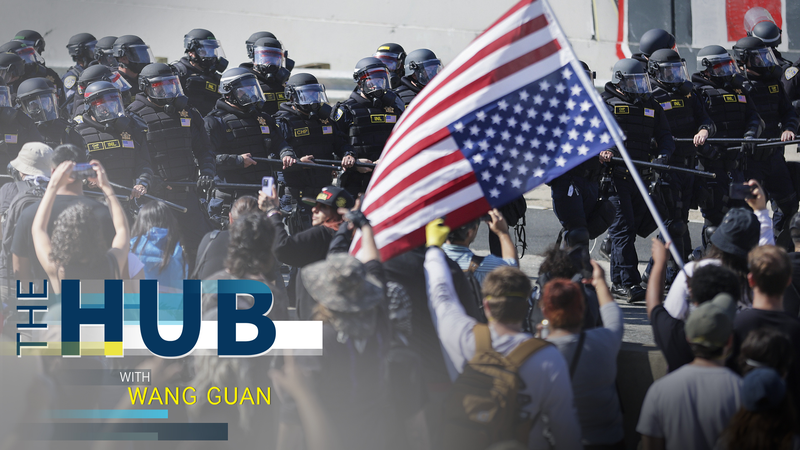Los Angeles has become the epicenter of a constitutional showdown. On June 8, the federal government deployed 2,000 National Guard troops across the city—without the consent of California's governor—to back aggressive immigration raids in predominantly Latino communities.
What followed was a wave of protests met with tear gas, rubber bullets, and alarming reports of journalists being targeted while documenting the unrest.
In this edition of The Hub, Wang Guan spoke with:
- Josef Mahoney, professor of politics and international relations at East China Normal University
- Andy Mok, senior research fellow at the Center for China and Globalization (CCG)
- John Gong, professor of economics at the University of International Business and Economics
'Deploying troops without state approval tests the limits of our constitutional framework,' warns Mahoney. 'It poses serious questions about federal authority versus state autonomy.'
Mok adds, 'Heavy-handed immigration enforcement can galvanize communities, driving new waves of activism rather than deterring it.'
Gong highlights the economic ripple effects: 'Civil unrest in major urban centers risks disrupting local businesses and investor confidence, which could reverberate through supply chains.'
This clash isn't just an LA story. It echoes wider debates on the balance of power, civil rights, and press freedom—issues resonating with young global citizens, entrepreneurs, activists, and digital nomads worldwide.
As the dust settles, the world watches: How far can federal power extend before it erodes foundational rights?
Reference(s):
cgtn.com




